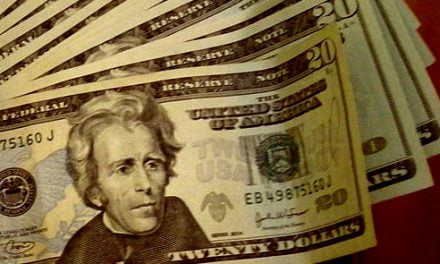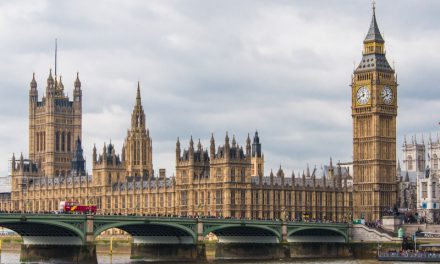Nobody understands debt, according to Nobel Prize-winning economist Paul Krugman. What he means specifically is that Congress, the media and the American people do not understand the distinction between public debt and private debt.
Krugman points to the recent debt debates in Congress as chief evidence that the widespread misunderstanding of public debt has largely wasted the time and resources of our legislators when they ought to be focused on solving the true problem at foot: the employment crisis creating this Lesser Depression.
Rather than strategizing ways to create jobs, Congress has been embroiled in an argument about a topic — public debt — they do not understand. By and large, government debt is analogized to private debt, and considered by both politicians and the public (and even by some economists) as functioning the same. It doesn’t. [For more information on the missteps of Congress in this Lesser Depression, see the January 2012 first tuesday article, Taming animal spirits in client buy-sell behavior.]
The primary distinction between public and private debt as laid out by Krugman, is that federal governments do not need to repay their debts. Rather, they simply need to ensure the income tax base grows at a quicker clip than their deficits.
Krugman reasons that U.S. sovereign debt (the debt many are most concerned about) is fundamentally different from our personal debts in that the assets the government holds effectively neutralize it. Namely, he argues that we are not deep in hock to China despite the fact that China owns trillions of dollars worth of U.S. debt, since the U.S. likewise has an equal or greater value of debt holdings in Chinese markets, thus equalizing the debt/debtor relationship.
In addition to this fundamental misunderstanding of foreign debt ownership, many disregard the fact that the single largest owner of American debt is the American people themselves. Thus, when it is said that government bonds are backed 100% by the full faith and credit of the U.S. government, the foundation of the guarantee is the productive power of the very people to whom the guarantee is made — American workers.
Thus debt is not the keystone but rather the red herring in spurious debates over a resolution to the Lesser Depression. Creating jobs ought to be the first and only concern for Congress at this time. Easier said than done, to be sure. But if we follow Krugman’s logic, a government can spend its way out of a depression (ours did 70 years ago), as long as that spending creates jobs.
first tuesday take: Ignorance from lack of proper education in economics is the inherent message from Krugman. That being implicit, his point is well-taken — the fundamental premise of this ongoing economic crisis is that unemployment has and is retarding the growth of our gross domestic product (GDP) and remains the ultimate cause of what seems to be an interminable economic downturn heading into this general recovery. [For more information on the effect of unemployment on the California housing market, see the December 2011 first tuesday article, Reeling from California’s lack of jobs.]
His distinction between public and private debt is dead-on, perhaps with one crucial misstep that first tuesday would like to illuminate. Just as governments never need to repay their debts, neither do private citizens in long-term circumstances, most importantly in mortgage debt. This is especially true in states such as California, a non-recourse state, meaning homeowners enjoy the right to enforce the put option that is unavoidably stated in their trust deed contracts. On the owner’s exercise of the option by default, the lender is forced to buy the property in exchange for the remaining principal balance on the loan. Thus, American homeowners need not blindly repay their debts in a market environment that does not justify repayment as a sound business decision.
Just as Congress needs more education on the functioning of public debt in order to better set their legislative mandates, the average American homeowner needs an education in the way their private mortgage debt functions so they too can put their financial house in order. The same rules have different results for government (with endless wealth) and homeowners (with the value of the home). Rather than throw good money away on a non-performing asset such as a negative equity home, it could be spent and invested wisely — a use of financial resources that will increase the family’s standard of living and spur economic growth, rather than pad the pockets of lenders with absolutely no trickledown effect.
Although first tuesday has often made this point before, its importance and Krugman’s current mullings justifies making it again: the duty of all Americans to repay their mortgage debt as a moral imperative is an illusion created by lenders (and the collusive federal government) to shame homeowners into repayment. Notwithstanding this so-called moral duty, homeowners enjoy the same rights as governments and corporations to default on their debts when fundamentals tell them it is wise to do so.
We are all subject to the same rules. Aren’t we? [For more information on the strategic default debate, see the January 2012 first tuesday article, The morality of strategic default: businesses vs. homeowners.]
re: “Nobody understands debt” form the New York Times



















I cannot for the life of me understand why First Tuesday would take a stand that you simply do not have to repay your debt if you choose not too… Our lending system is based on trust and if that trust is breached by enough people, lending standards get more stringent and make it even more difficult for buyers to borrow money.
One point all these commentaries seem to gloss over is that if the borrower(s) made all their scheduled payments they would own their home free and clear by the end of the loan term… so this idea that “they will never” see equity again is simply not true.
Of Course, I have read other articles you have written and it would seem that First Tuesday is against home ownership if you need to finance anyway… which if that were the case, your business of providing education for real estate agents and brokers would suffer as well as jobs in the construction, escrow, appraisal, lending and inspecting fields.